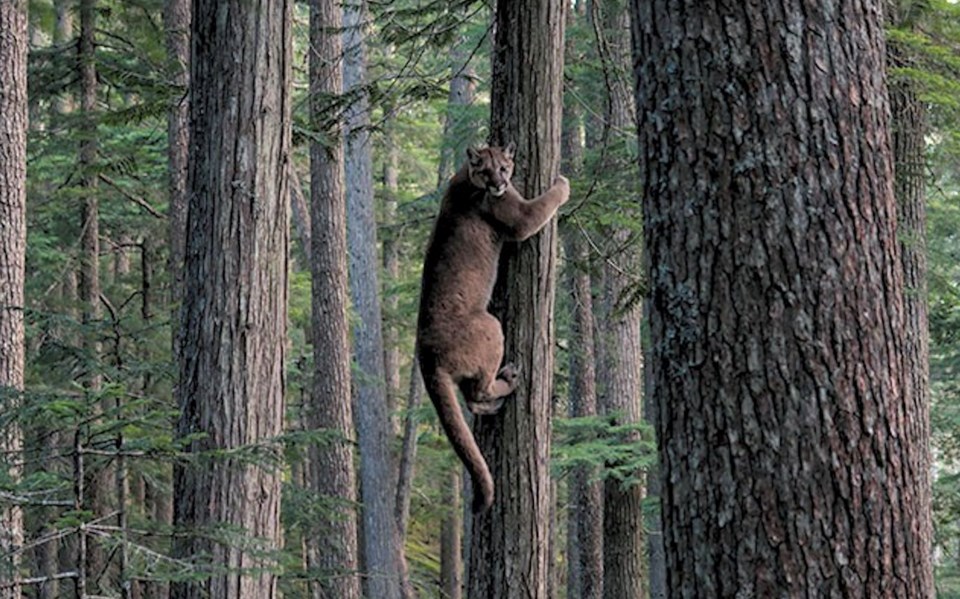A Pemberton mountain biker is warning others to bike in groups after hearing “chirping” noises at the start of a trail. Joel Chevalier was on a night ride on Tuesday, Nov. 7 when he heard “a distinctive chirping sound” at the start of Mission Impossible 2. Chevalier told Pique he heard the sound at about 7 p.m. and was eager to get out of the area.
“I am fairly confident that what we heard was a cougar,” he said. “At first it sounded like a large bird chirping, but just a bit deeper in sound. I’ve heard cougars and other similar cats chirp before and what we heard tonight was very similar. We didn’t stay in the area very long.”
Chevalier was biking with a friend, but said he would prefer to travel in a larger group in future. He is urging Pemberton’s biking community to stay alert.
“Normally, we would night ride in a larger group,” he said. “It’s a good idea for those riding to exercise some caution and ride in a group. It was a bit unnerving to hear the sounds at night!”
Cougar activity in the Pemberton area is not uncommon, and the animals are most active between dusk and dawn. According to WildSafeBC, cougars—also known as mountain lions, pumas and panthers—account for about 2,500 calls to the BC COS every year, but many of those reported sightings turn out to be other animals, not cougars.
Whistler bike trails were closed for a time in September after a cougar knocked a rider from a mountain bike near the Flank and 19 Mile Creek trails intersection.
Elise Pullar from WildSafe BC explained that cubs can communicate in chirps. "Cougars communicate with various vocalizations. Aggressive sounds include growls, spits, snarls and hisses," she said. "During the mating season, females produce yowls to attract mates and males respond with similar vocals. Mothers and offspring keep in contact with whistles, chirps and mews (chirps come from cubs and this would likely be in the spring). The most commonly recognized cougar sound is a high pitched scream."
David Karn of B.C.'s Ministry of Environment & Climate Change Strategy urged people to report cougar activity so appropriate signage can be installed. He speculated there may be kill in the area.
“The COS encourages people who experience aggressive cougar encounters or conflicts to report such incidents to the Report All Poachers and Polluters (RAPP) hotline at 1-877-952-7277,” he said. “Accurate and timely reports can help Conservation Officers determine the best course of action.”
The provincial government’s website lists guidelines on dealing with cougar encounters:
-Stay calm and keep the cougar in view, and pick up children immediately. Children frighten easily and the noise and movements they make could provoke an attack. Back away slowly, ensuring the animal has a clear avenue of escape.
-Make yourself look as large as possible and keep the cougar in front of you at all times. Never run or turn your back on a cougar. Sudden movement may provoke an attack.
-If a cougar shows interest or follows you, respond aggressively, maintain eye contact with the cougar, show your teeth and make loud noise. Arm yourself with rocks or sticks as weapons.
-If a cougar attacks, fight back, convince the cougar you are a threat and not prey, and use anything you can as a weapon. Focus your attack on the cougar's face and eyes. Use rocks, sticks, bear spray or personal belongings as weapons. You are trying to convince the cougar that you are a threat, not prey.




